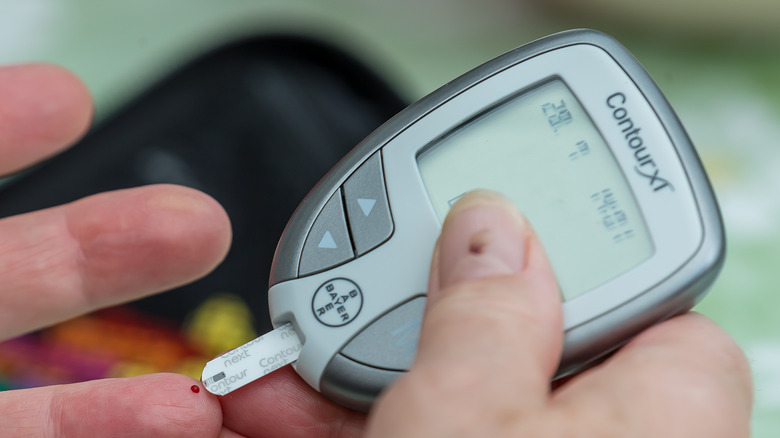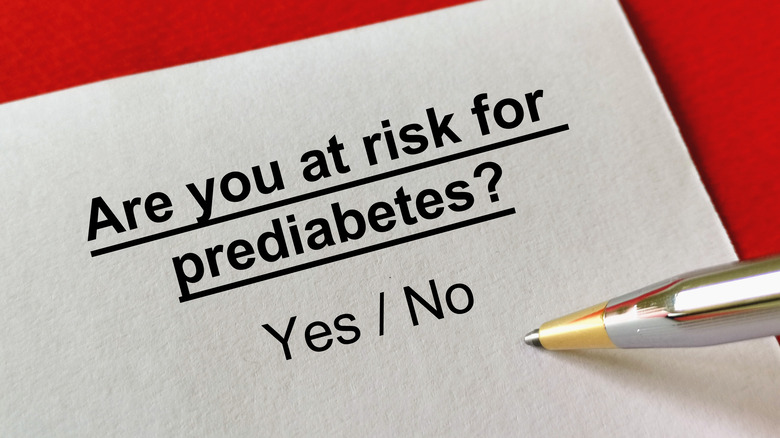Why Having A 'Normal' Glucose Level Doesn't Always Mean Your Insulin Levels Are OK
WebMD explains that insulin is a hormone that the pancreas produces when we eat foods containing carbohydrates. First, the intestines break carbohydrates down into a type of sugar called "glucose." Glucose then passes into the bloodstream, causing blood sugar to rise. Insulin's job is to govern how much glucose is in the blood and help glucose get into the cells where it can be used for energy production. Any excess glucose gets stored in the form of glycogen in the liver, muscles, and fat cells. Then, as needed, it can be converted back into glucose by the hormone glucagon.
Dr. Mark Hyman told Mindbodygreen that insulin production is generally a good thing, since it keeps blood sugar levels balanced. However, it can be a problem when you experience frequent blood sugar spikes. Your body must then make even more insulin in order to bring blood sugar back down. Over time, this can cause you to develop insulin resistance.
Normal blood sugar and high insulin may be sign of trouble
When people develop insulin resistance, explains the National Institute of Diabetes and Digestive and Kidney Diseases, their muscles, fat, and liver become less responsive to insulin. The pancreas then has to make more insulin to move glucose into the cells where it can be used. As long as enough insulin can be produced to overcome this resistance, blood sugar remains in balance. However, all is not well just because blood sugar is normal.
Over time, the pancreas may not be able to do as good of a job compensating, and blood sugar levels will rise. When fasting blood sugar rises into the range of 100-125 mg/dL, this is considered to be prediabetes, according to Virginia Mason Franciscan Health. In addition, any test result between 140 mg/dL and 199 mg/dL during a two-hour 75g oral glucose tolerance test or an A1c measurement between 5.7-6.4% would be diagnostic for this condition. Prediabetes is problematic because it can progress into being full-blown type 2 diabetes over time.
It is important to be aware that just because you currently have a normal blood sugar reading, this does not necessarily mean that you are healthy. Behind the scenes, your pancreas may be struggling to keep up. Eating healthy foods, staying active, maintaining a healthy weight, not smoking, and keeping an eye on your blood pressure and cholesterol are steps you can take early on to help prevent diabetes from developing, says the Mayo Clinic.


